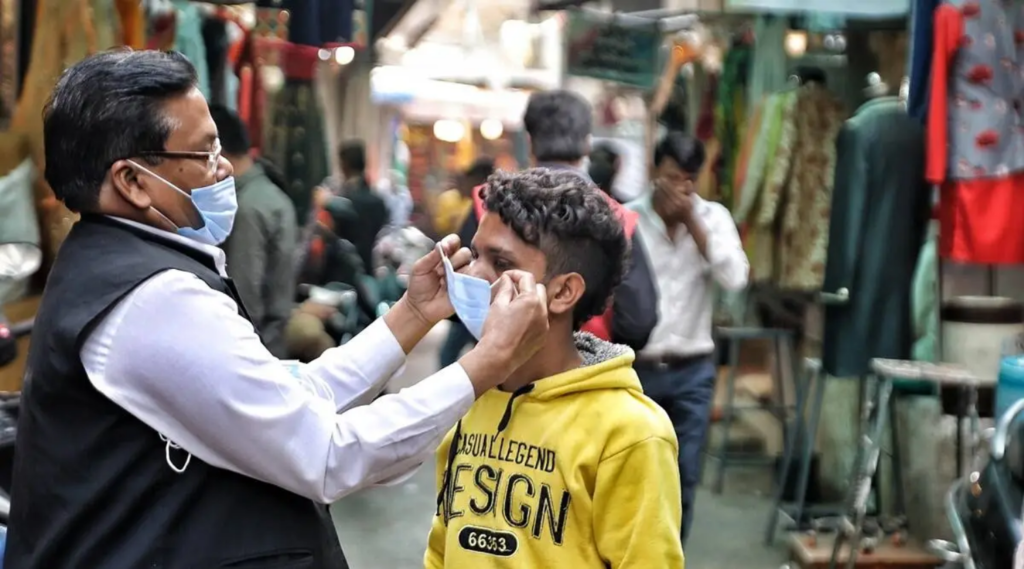R-value over 1 across India, Delhi brings back mask mandate
India has witnessed a rise in the effective reproduction number (R-value) for Covid-19, indicating the speed of the disease’s spread in the population. For the first time since mid-January, during the third wave of the pandemic, the R-value has surpassed 1. According to researcher Sitabhra Sinha from Chennai’s Institute of Mathematical Sciences, who has been monitoring the R-value since the pandemic’s onset, it was 1.07 for April 12-18, up from 0.93 the previous week.

An R-value exceeding 1 implies that each infected person is transmitting the infection to at least one other person, a critical threshold indicating a potential increase in cases. Sinha cautioned against prematurely labeling this as the beginning of a fourth wave, citing instances in the past where an R-value over 1 did not lead to a designated wave.
The current uptick in the R-value is primarily attributed to surges in Covid cases in Delhi, Uttar Pradesh, Haryana, and Karnataka. As of April 18, the R-value stood at 2.12 for Delhi, 2.12 for Uttar Pradesh, 1.04 for Karnataka, and 1.70 for Haryana.
Cities like Mumbai, Chennai, and Bengaluru have also reported R-values exceeding 1 (1.13, 1.18, and 1.04, respectively). During the Omicron-driven wave, the country’s R-value reached its highest point of 2.98 between December 30, 2021, and January 10, 2022.

Sinha highlighted that the R-value at present is comparable to the period just before the onset of the second wave last year. With 2,067 new cases reported in the last 24 hours, India’s active case load stands at 12,340, and the weekly positivity rate is 0.38 per cent. Authorities in affected regions, such as Delhi, have reintroduced mandatory mask-wearing in response to rising cases.
